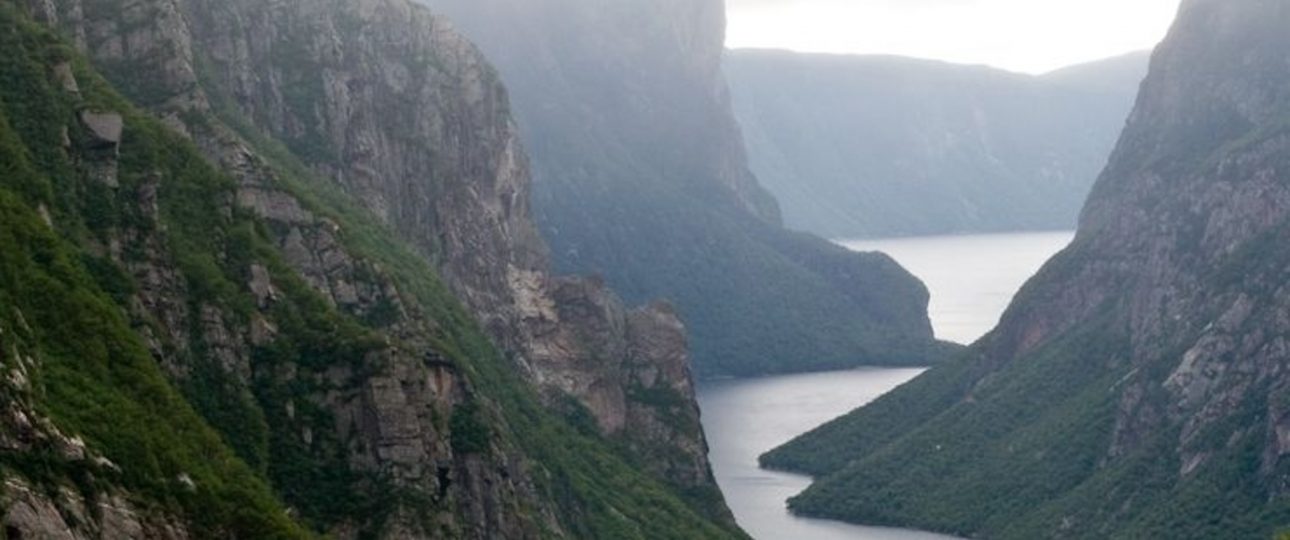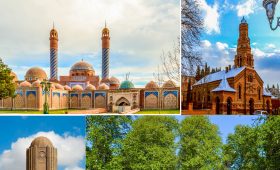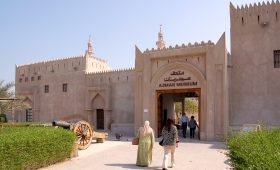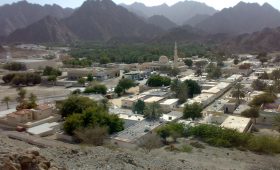Gros Morne National Park: A Journey Through Geological Marvels
Why Visit Gros Morne National Park?
Gros Morne National Park, located in Newfoundland and Labrador, Canada, is a UNESCO World Heritage Site renowned for its geological diversity. The park spans 1,805 square kilometers and is part of the Long Range Mountains, an extension of the Appalachian chain. This landscape offers a rugged, mountainous terrain with unique geological features, including fjords and the barren Tablelands.
The Tablelands
The Tablelands are a striking feature of Gros Morne. Situated between Trout River and Woody Point, these rust-colored mountains are composed of peridotite, a rock typically found deep within the Earth’s mantle. The barren appearance of the Tablelands is due to the rock’s lack of nutrients and its toxic quality to most plant life. Walking through this area feels like exploring a different planet.
Western Brook Pond
Western Brook Pond is a freshwater fjord that offers breathtaking views of towering cliffs and cascading waterfalls. Boat tours are available, providing an opportunity to experience the fjord’s dramatic landscape up close. This area is a haven for those looking to connect with nature in a profound way.
Gros Morne Mountain
Gros Morne Mountain, the park’s namesake, stands at 806 meters and is the second highest point in Newfoundland. The hike to the summit is challenging but rewarding, offering panoramic views of the park and the Gulf of St. Lawrence. The name “Gros Morne” translates to “large mountain standing alone” or “great sombre,” reflecting its imposing presence.
Best Time to Visit
The park operates from mid-May to mid-October, with most facilities open daily. This period is the high season, so booking accommodations in advance is advisable. Summer temperatures are mild, with highs around 20°C. For a quieter experience, consider visiting in the shoulder seasons of spring or fall. Winter visits are possible, but some activities may be limited due to weather conditions.
Getting There
Deer Lake Regional Airport is the nearest airport, about an hour’s drive from the park. It offers flights from major Canadian cities like Montreal, Toronto, Halifax, and St. John’s. Alternatively, you can take a ferry from North Sydney, Nova Scotia, to Port aux Basques, Newfoundland, followed by a four-hour drive to the park.
Local Transportation
Having a car is recommended for exploring Gros Morne National Park, as it allows flexibility to visit various attractions. Local tour operators offer guided tours and transportation services within the park. Additionally, there are numerous hiking trails and walking paths for those who prefer to explore on foot.
Wildlife and Climate
The park is home to a diverse range of wildlife, including moose, caribou, black bears, and various bird species. The climate is temperate, with summer highs around 20°C and winter lows around -5°C. Annual precipitation is over 1300 mm, so be prepared for rain.
Key Facts
- Gros Morne National Park covers 1,805 km² in Newfoundland and Labrador, Canada.
- The park is a UNESCO World Heritage Site known for its geological diversity.
- The Tablelands are composed of rare peridotite rock.
- Western Brook Pond is a stunning freshwater fjord.
- Gros Morne Mountain offers a challenging hike with panoramic views.
- The best time to visit is from mid-May to mid-October.
- The nearest airport is Deer Lake Regional Airport.
- Having a car is recommended for exploring the park.




